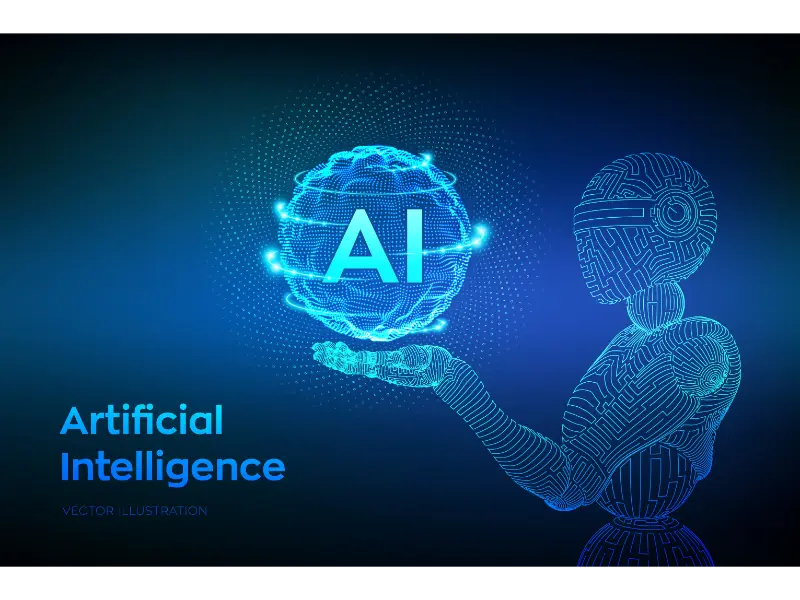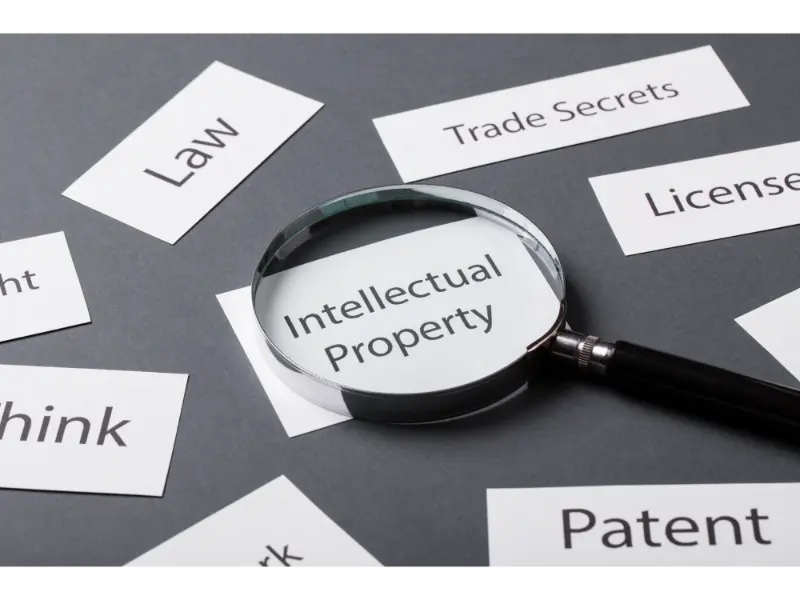- CNKI, China’s leading academic database, has issued a 28-page infringement notice against Metaso AI, accusing it of unauthorised use of its academic literature metadata and abstracts.
- The case highlights growing concerns over AI’s impact on copyright, privacy, and ethics, especially regarding academic databases.
OUR TAKE
The CNKI-Metaso AI dispute underscores the complex intersection of AI and copyright law, particularly in academic contexts. As AI continues to shape the way information is accessed and processed, it raises critical questions about intellectual property, privacy, and ethics. This case may set a precedent for how AI systems interact with copyrighted material, particularly in the realm of academic research, where the balance between innovation and protection is crucial.
— Zoey Zhu, BTW reporter
As artificial intelligence (AI) technology evolves, it brings new challenges to traditional copyright laws. A prominent example of this tension is the recent dispute between CNKI, China’s largest academic database, and Metaso AI, an AI-powered search engine. CNKI has issued a 28-page infringement notice accusing Metaso AI of unlawfully using its academic literature metadata and abstracts. This case not only highlights the specific legal conflict but also reflects broader concerns about copyright and privacy in the AI era.
Introduction: The rise of AI and copyright challenges
The advent of artificial intelligence (AI) has ushered in a new era of innovation across various industries, revolutionising the way we access, process, and generate information. From content creation to data analysis, AI has become a powerful tool that enables unprecedented efficiency and creativity. However, this technological leap also brings significant challenges, particularly in the realm of copyright law. As AI systems increasingly rely on vast datasets to train algorithms and produce content, they often interact with copyrighted materials in ways that were not anticipated by existing legal frameworks.
In the broader context, AI’s impact on copyright is profound and multifaceted. For instance, generative AI tools can create art, music, and literature that closely mimic human-made works, raising questions about originality and ownership. Search engines and data aggregators powered by AI, like Metaso AI, scrape and process massive amounts of data, including academic articles, images, and other protected content, often without explicit permission. This has led to growing concerns over the potential for copyright infringement, as well as the ethical implications of AI systems that operate without clear guidelines.
The recent dispute between CNKI, China’s largest academic database, and Metaso AI, an AI-based search engine, exemplifies these challenges. CNKI has accused Metaso AI of unauthorised use of its academic literature metadata and abstracts, sparking a broader debate about the boundaries of fair use and the responsibilities of AI developers. This case is not an isolated incident but rather a reflection of the broader tensions that are emerging as AI continues to disrupt traditional notions of intellectual property. As industries grapple with these challenges, the need for updated legal frameworks that address the unique characteristics of AI is becoming increasingly urgent.
Also read: Authors sue Anthropic for copyright infringement over AI training
The legal landscape: Copyright and AI
“The requirement of human authorship is a basic principle of US copyright law.”
Jonathan Band, counsel of Library Copyright Alliance
The core issue in the CNKI vs. Metaso AI case revolves around copyright infringement. CNKI asserts that Metaso AI has used its metadata and abstracts without permission, challenging the boundaries of copyright law as applied to AI. This situation underscores a fundamental question: how do traditional copyright laws apply to AI technologies that process and generate content? Jonathan Band, counsel to the Library Copyright Alliance, emphasises the importance of human authorship in copyright law. He notes that “The requirement of human authorship is a basic principle of US copyright law,” but the rise of AI challenges this notion. The resolution of this case could set a significant precedent for how courts and regulators handle AI-related copyright issues.
In response to these evolving challenges, there is growing recognition that existing legal frameworks may not be fully equipped to address AI’s complexities. For example, the US Copyright Office has traditionally upheld the principle that works must have human authors. However, as AI systems become more sophisticated, this principle is increasingly scrutinised. The CNKI-Metaso AI case may prompt a reevaluation of how copyright laws can adapt to new technologies.
Privacy implications of AI search engines
“The spread of AI in a country as diverse and complex as India can have devastating consequences if not managed properly.”
Nandan Nilekani, co-founder of Infosys
AI search engines, such as Metaso AI, have the capability to scrape and analyse vast amounts of data, including sensitive and proprietary information. This ability raises significant privacy concerns. The potential for AI to access and misuse confidential data is particularly alarming in academic and research contexts, where unpublished research and proprietary data are at risk. As noted by data privacy expert Nandan Nilekani, “The spread of AI in a country as diverse and complex as India can have devastating consequences if not managed properly.” Ensuring that AI tools handle data with the utmost respect for privacy and confidentiality is essential to mitigate these risks.
Moreover, the use of AI in data management requires stringent safeguards to prevent unauthorised access and misuse of information. AI systems must be designed with robust security measures to protect sensitive data and comply with privacy regulations. The challenge lies in balancing the benefits of AI-driven data analysis with the need to safeguard individual and organisational privacy.
Also read: Suno argues AI training with copyrighted music is legal
Ethical considerations in AI data use
“Generative AI services scrape the web for potentially copyrighted content to train its machine learning.”
Judy Ruttenberg, senior director of Scholarship and Policy, Association of Research Libraries
The ethical implications of AI’s use of data are significant and multifaceted. AI systems that scrape and utilise data must adhere to ethical standards and respect intellectual property rights. The balance between innovation and ethical use is delicate, as AI technologies have the potential to both enhance and infringe upon the rights of content creators. Judy Ruttenberg’s interview with Jonathan Band highlights the complexities of fair use in the context of AI: “Generative AI services scrape the web for potentially copyrighted content to train its machine learning,” raising questions about whether such practices are justified.
Ethical AI development necessitates transparency and accountability. Developers and companies must ensure that their AI systems are designed to operate within legal and ethical boundaries. This includes providing clear information about data usage practices and ensuring compliance with intellectual property laws. Addressing these ethical considerations is crucial for maintaining public trust and fostering responsible innovation.

Case studies: Comparing the US and China
United States: Copyright challenges and AI integration
In the United States, the debate over AI and copyright revolves around how AI technologies interact with existing legal frameworks. One notable example is the dispute involving major tech companies and copyright holders over data scraping for AI training. In cases such as Authors Guild v. Google and Authors Guild v. HathiTrust, US courts have generally ruled that using copyrighted materials to train AI models can be considered fair use, provided it meets specific criteria. Jonathan Band, counsel to the Library Copyright Alliance, has pointed out that while data ingestion by AI for training purposes has been deemed fair use, the actual output generated by AI could still be subject to infringement if it closely resembles protected works.
For instance, the US Copyright Office has historically maintained that works must have human authors to be eligible for copyright protection. This stance is based on a long-standing principle that excludes works solely generated by machines from copyright eligibility. However, as AI-generated works become more sophisticated, this position may face challenges. Band notes, “The requirement of human authorship is a basic principle of US copyright law,” yet the evolving capabilities of AI are prompting discussions about whether legislative changes might be needed to address these new realities.
China: CNKI’s infringement notice to Metaso AI
In contrast, China’s approach to AI and copyright is illustrated by CNKI’s recent infringement notice to Metaso AI. CNKI, a leading academic database, accuses Metaso AI of unlawfully using its academic literature metadata and abstracts. The crux of the issue is whether Metaso AI’s provision of metadata and abstracts from CNKI’s database constitutes a violation of CNKI’s intellectual property rights. This case highlights the challenges Chinese entities face in protecting their data from unauthorised AI applications, reflecting a growing concern over data privacy and intellectual property in an AI-driven world.
China’s legal system places a strong emphasis on protecting digital content and intellectual property. However, as AI technologies become more integral to information retrieval and processing, traditional copyright frameworks may struggle to keep pace. This is evident from CNKI’s aggressive stance against Metaso AI, aiming to safeguard its valuable academic resources from what it perceives as unlawful exploitation. The dispute underscores the need for clearer regulations and more robust legal protections in the face of rapid technological advancements.
Comparative analysis
Comparing the US and Chinese approaches reveals several key differences. In the US, the legal discourse around AI and copyright often revolves around the balance between fair use and the protection of intellectual property, with a focus on whether AI’s use of copyrighted materials is transformative. In contrast, China’s emphasis is more on the direct protection of digital content and the enforcement of intellectual property rights, as seen in CNKI’s legal actions against Metaso AI.
While US courts have begun to address the complexities of AI’s impact on copyright through case law and fair use doctrines, China is grappling with how to adapt its legal frameworks to safeguard its digital content from unauthorised AI exploitation. This divergence reflects broader differences in how the two countries approach copyright in the digital age, with the US focusing on fair use and transformative use, while China prioritises strict control and protection of intellectual property.
Pop Quiz
What does Jonathan Band say about terms of service and fair use in AI data scraping?
A) Terms of service always override fair use principles.
B) Fair use principles may allow data scraping even if terms of service prohibit it.
C) Terms of service are irrelevant in copyright disputes.
D) Fair use does not apply to AI technologies.
The correct answer is at the bottom of the article.
Regulation and countermeasures: Navigating the legal landscape
The CNKI-Metaso AI case also highlights the inadequacies of existing legal frameworks in addressing the challenges posed by AI. While copyright laws are designed to protect human-created works, they often fall short when it comes to AI-generated content. This has led to calls for legal reforms that address the unique challenges posed by AI, particularly in the area of copyright.
In addition to legal reforms, there is also a need for international cooperation to regulate AI effectively. As AI technologies become increasingly global, it is essential to develop harmonised regulations that ensure consistent protection of intellectual property rights across borders. Furthermore, technological solutions, such as advanced detection tools and algorithms, could play a crucial role in identifying and mitigating potential copyright infringements by AI systems.

Conclusion: The need for balanced regulation
The CNKI-Metaso AI dispute serves as a stark reminder of the challenges and complexities that arise as AI becomes more integrated into our daily lives. While AI offers immense opportunities for innovation, it also presents significant risks to intellectual property, privacy, and ethics. As we move forward, it is crucial to strike a balance between fostering innovation and protecting the rights of content creators. This will require a collaborative effort between governments, tech companies, and academic institutions to develop and enforce regulations that safeguard intellectual property while allowing AI to continue to thrive.
In the words of Jonathan Band, “The challenge lies in adapting our legal frameworks to keep pace with technological advances.” As AI continues to evolve, it is essential to ensure that our legal and ethical standards evolve with it, ensuring that the benefits of AI are realised without compromising the fundamental principles of copyright, privacy, and academic integrity.
The correct answer is B) Fair use principles may allow data scraping even if terms of service prohibit it.

